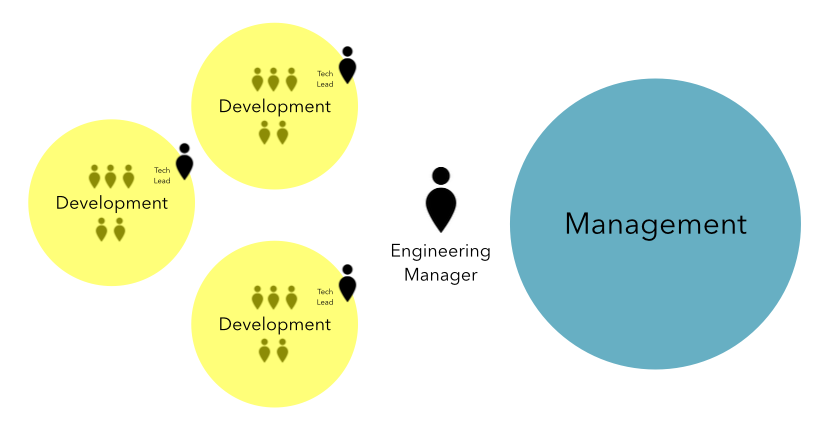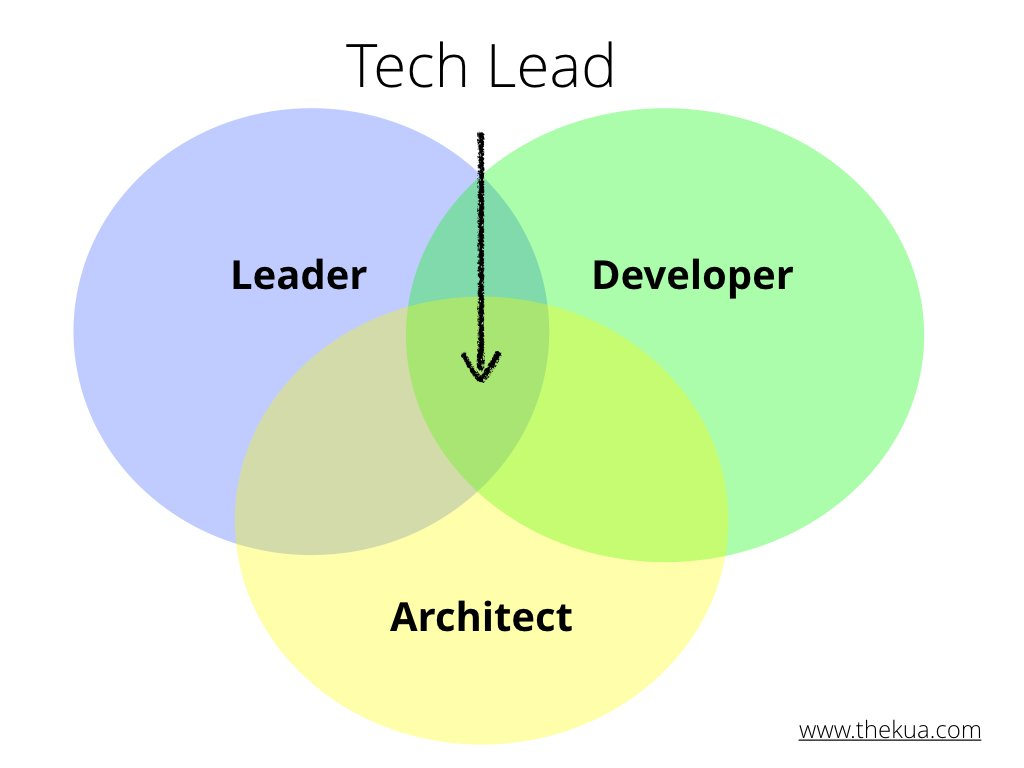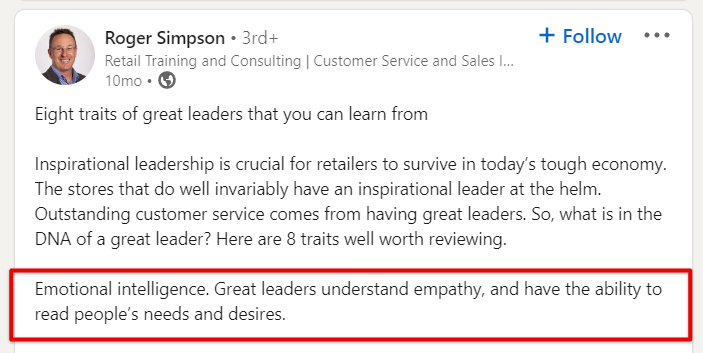
When you think of a software development company, who comes to mind? The developers, right? But what about the tech lead?
Tech leads are often forgotten in the process of talking about building software products.
However, they’re crucial for the success of any project. They’re responsible for managing teams and making sure everyone is working on the right tasks at the right time.
Also, it takes years of experience, self-learning, and hard work to become an effective tech lead, meaning it’s a position that requires someone with a lot of expertise.
That’s why in this article, we’ll dive into what makes a tech lead so valuable to a software development company.
You’ll learn what skills they need and why their role is so important in any organization.
Let’s get started!
Table of Contents
What is technical leadership?
Technical leadership is the art of leading a team of developers. It’s a combination of technical skills and people skills, which means that it can be a pretty challenging position.
For starters, let’s see how the tech lead position defines Pat Kua, public speaker and author of Talking with Tech Leads.
“A Tech Lead is a software engineer responsible for leading a development team, and responsible for the quality of its technical deliverables.”

In other words, a tech lead is responsible for making sure all the pieces of a project—from the technology to the human element—fit together seamlessly.
Tech leads are usually the first people to be tasked with getting new projects off the ground.
They decide which assignments are crucial, based on factors like time constraints and technical complexity, ensure that projects are moving forward on schedule and within budget, and have a say in what technology is used, and how it’s implemented.
Although that may sound like an engineer manager position, it’s quite different, although similarities exist.
As you can see in the picture, a tech lead is a mid-level position in software development that often falls between the roles of developer and engineer manager.

They’re experienced software developers who have been promoted to tech lead and given more responsibility than their peers.
Tech Leads may have spent years working in the industry before taking on this role, but most come from a technical background and are proficient in at least one programming language.

Get unreal data to fix real issues in your app & web.
In many ways, you can look at tech leads as mini managers.
They’re responsible for managing several people and projects at once, but they don’t have all of the same responsibilities as managers.
But what are their responsibilities then, you may wonder?
In a nutshell, their position requires balancing three roles: leader, developer, and architect.

The leader role is self-explanatory—they’re ultimately responsible for managing their teams. This means setting goals, assigning tasks, and making sure everyone stays on track.
Then, the architect defines the overall architecture for the project and ensures that everyone understands how their work fits into the bigger picture.
Finally, there’s development—or coding, if you prefer.
Developers are expected to produce high-quality code that meets business requirements, solve problems efficiently, and do so in accordance with good software development practices.
As you can imagine, this balancing act isn’t easy. But if tech leads can do it right, they’ll be able to manage high-performing teams that can take on some of the toughest challenges out there.
The importance of good technical leadership in software houses
Technical leadership is one of the most important roles for any company that’s building software, and there are several reasons why.
For starters, it’s easy to get lost on the rocky road when it comes to development, so having someone on the team who knows how to build great software is essential.
You want someone who understands how development works, who has ideas on how to improve processes, and who knows how to lead teams of talented developers.
If companies don’t have this kind of person on their team, they might lack insight into what needs fixing or improving within the development process.
For example, Paweł Ledwoń, CTO of Pusher, thinks that tech leads are crucial for finding solutions to obstacles in the team’s workflow and answering technical questions about databases, technical debts, and performance issues, thus setting the course for the team.

In other words, as tech leads know how everything works, they provide direction and make decisions.
Without strong technical leadership, companies may end up with expensive mistakes or missed deadlines—or worse yet, both!
Tech leaders can spot problems before they arise and fix them before too much damage has been done, as opposed to waiting for them to happen, and then trying to fix them afterward.
You’ve probably already heard of the term technical debt.
The idea is that, when you take shortcuts while building a product, there’s a cost. You’re paying off that debt by spending time and resources down the road.
According to OutSystems, technical debt will cost companies 5 trillion in the next 10 years, and that is a huge issue.

However, a good tech leader can recognize when technical debt is accumulating and take steps to ensure the team isn’t stuck with a bunch of bad code that will be difficult to refactor later on.
And finally, we also have to mention that when teams have a good leader, they tend to be more productive.
This is also true in the development world because developers can feel more confident about their work when someone else is there who understands what they’re doing and why it’s important for the project as a whole.
Great tech leaders will make sure that everything goes smoothly and that everyone stays organized.
They’ll also help the whole team focus on their tasks, giving them a sense of direction and purpose.
In return, teams will be more productive and efficient—which is something every business strives for.
What does a technical lead do?
Being a tech lead is a very challenging role. Tech leads need to be able to wear many hats, from architect to software developer and mentor to teammate.
They’re in charge of the team’s technical vision, but they also ensure that everyone on their team is able to execute that vision successfully.
They need to make sure all developers have what they require to do their job well, but also give them enough space so that there isn’t too much micromanaging going on either.
At its core, being a tech lead is about making sure that the team is operating at peak efficiency—and that means knowing how each member functions in this complex ecosystem.
We must admit, this is a tall order, and it’s easy to get overwhelmed by the sheer number of variables involved. However, it can also be very rewarding.
Let’s see what it looks like in practice to get a better understanding of what a day of tech lead looks like.
Tyler Hawkins, who has been working as a tech lead in several companies, reviews pull requests, usually in the mornings, and makes sure that team members are not held back by anything.

After that, he focuses on his own tasks at hand, checks code quality, and answers questions throughout the day.
As you can see, tech leads have a lot of responsibility resting on their shoulders.
However, even though they’re leading the team, this does not mean that they shouldn’t continue writing code.
Although there’s a lively debate on whether tech leads should be getting their hands dirty with code or just be responsible for the code quality, the unwritten agreement is that tech leads should code at least 30% of the time.

That way, they’ll be able to keep track of the issues that their team is dealing with and how their codebase is evolving.
On the other hand, the technical lead can also be one of the most rewarding roles in the development team because it allows tech leaders to serve as mentors.
In fact, in many companies, they’re responsible for helping other team members grow and develop their skills.
This can take many forms: helping junior developers learn new concepts or technologies, training other team members in different areas, mentoring new employees, or even managing training programs for employees who want to improve their skills.
For example, for Dalia Simons, tech lead at Wix, team leadership is all about mentoring, helping other developers with their design and code reviews, and offering them other forms of support.

In other words, tech leads aren’t solely concerned with their own success. They’re invested in the success of the team as a whole.
To sum up, tech leads are responsible for leading their teams through thick and thin and providing guidance on how to solve technical problems.
They also serve as a go-to person for developers when they have questions or concerns about their work.
Figuratively speaking, the technical leads are the glue that holds a team together as they’re responsible for ensuring that everyone on the team is working together effectively.
Personality traits of good technical leaders
The best technical leaders don’t just have technical skills—they also have personality traits that make them great at leading teams.
For example, a technical leader must possess a learner mentality. Why?
Because technology changes so fast that a true expert in one area will eventually become obsolete if they can’t keep up with the changes.
Technical leaders should always be asking themselves how they can improve their skills, their team’s performance, and the technology they’re building.
In one of his articles, Thomas Frank, strategic advisor and founder of Ascend, shared a story about the conversation he had with Dr. Thomas Zurbuchen, a noted astrophysicist who holds a senior position at NASA.

What struck him is that, although he was already a prominent figure at NASA, he was still enthusiastic to learn new things and share what he knows with others.
That eventually led the author to firmly believe that learning is one of the biggest traits of a good leader.
A learning mentality, in fact, will help us be successful in any role, but it’s particularly important for tech leaders because they’re often responsible for technical decisions that have far-reaching implications on the company.
In addition to being good learners, the best technical leaders are also great communicators.
Communication is an essential skill for any leader, but technical leaders are often called upon to communicate in ways that many people in other roles aren’t.
They must explain complex concepts and ideas to a wide range of audiences—from customers and clients to management, from peers to project managers.
And communication is even more important considering that employees rate effective communication as the number one leadership attribute and that only about a third of employees feel their leaders communicate well.

It’s not easy being a leader of any kind, but it seems like it’s even harder when you are in charge of technical people who are problem solvers by nature.
When the staff consists of smart, creative, and analytical people who love solving problems and finding new ways of doing things—what can you do to keep them motivated?
And how can you make them feel valued?
The answer is simple: employ your emotional intelligence, the ability to understand our emotions and the emotions of those around us, and act in a positive manner.
This doesn’t mean that tech leaders need to be too emotional or overly talkative.
But it does mean that they must be able to read body language and facial expressions well enough to know when their developers are experiencing burnout, or have some other concerns.
Or how Bob Gershberg, CEO and managing partner of Wray Executive Search, states, that tech leaders should have the ability to read their team members’ needs and desires and show empathy when needed.

The best leaders are able to inspire, motivate and help their team succeed. They’re also able to listen, understand and empathize with their team members on an emotional level.
And all of that would be almost impossible without emotional intelligence.
Conclusion
In the world of digital technology, it’s becoming more and more important to have a strong technical team.
The world has become more digitally oriented and this means that people are relying on technology more than ever before.
As a result, there is an increased demand for skilled developers with leadership traits who can create powerful software products.
That’s why in this article, we tried to explain what skills tech leads need to possess in order to excel at their job, why companies should consider them as an addition to their teams, and what qualities they should have in order to be trusted with the company’s most important projects.
We hope that you found this article helpful and useful and that it’ll inspire you in your technical leadership endeavors.




